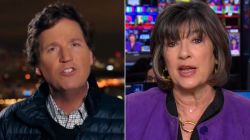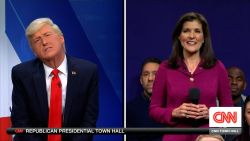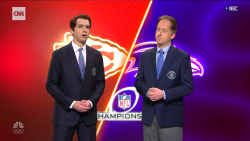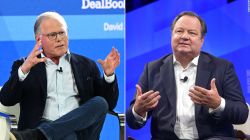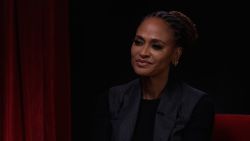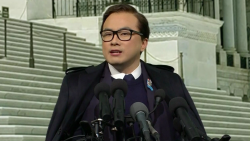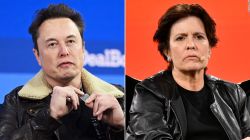After weeks of scandal revolving around Facebook (FB), and now with a flood of new reporting coming out about the ways in which some its own employees think the company is bad for society, Mark Zuckerberg and his company’s public relations team are trying to get through it, in part, by bashing the media.
“Good faith criticism helps us get better,” Zuckerberg said on the company’s quarterly earnings call Monday afternoon, the same day a group of outlets published a total of more than 50 stories about Facebook’s negative impacts based on leaked documents. “But my view is that what we’re seeing is a coordinated effort to selectively use leaked documents to paint a false picture of our company.”
The Facebook Papers — a series of articles based on more than ten thousand pages of internal Facebook documents that had been submitted to the SEC and to Congress in redacted form by Facebook whistleblower Frances Haugen’s legal counsel — revealed new details about the company’s challenges. Facebook’s PR strategy includes publicly casting doubt on the credibility of the whistleblower and media outlets that have covered the company’s issues. At times, the tone of Facebook’s recent tweets and statements to the press has come off as desperate.
The most recent addition to Facebook’s list of scandals started on September 13 when The Wall Street Journal published the first chapter of The Facebook Files, its investigative series based on leaked internal documents that reveal the company’s awareness of its own problems — from questions around Instagram’s toxicity for teenage girls to Facebook’s struggles with cracking down on human trafficking.
On October 3, “60 Minutes” aired an exclusive interview with Haugen, a former Facebook product manager who released internal documents to regulators and to The Journal. On October 5, Haugen detailed her knowledge of Facebook’s internal workings to a Senate subcommittee. Then this week, CNN and other media outlets began releasing The Facebook Papers.
One way Facebook has pushed through the bad press is by trying to undermine Haugen. Zuckerberg wrote a 1,300-word Facebook post after Haugen’s Congressional hearing to say that she took Facebook’s research out of context. Facebook communications executive Andy Stone used the hearing as an opportunity to remind the public that Haugen “did not work on child safety or Instagram or research these issues,” which is something Haugen herself noted in her testimony, though Stone went further to say she “has no direct knowledge of the topic from her work at Facebook.”
As the lifting of the embargo on The Facebook Papers loomed, Facebook’s PR shop tried to get ahead of the fresh cycle of damning headlines by taking their combative stance to the platform favored by journalists: Twitter.
“We expect the press to hold us accountable, given our scale and role in the world. But when reporting misrepresents our actions and motivations, we believe we should correct the record,” the company’s official Twitter account posted last week. “Over the last 6 weeks, including over the weekend, we’ve seen how documents can be mischaracterized. Obviously, not every employee at Facebook is an executive; not every opinion is the company’s position.”
“Right now 30+ journalists are finishing up a coordinated series of articles based on thousands of pages of leaked documents,” the tweet thread continued. “We hear that to get the docs, outlets had to agree to the conditions and a schedule laid down by the PR team that worked on earlier leaked docs.”
Facebook’s tweets mischaracterized the situation since Haugen’s public relations team is not the party coordinating the release of these articles. Even so, Facebook’s stance on reporters abiding by an embargo was, as critics have noted, more than a little hypocritical, since such embargoes are a common media practice — one that Facebook itself employs.
The Twitter thread concluded with a jab at the consortium of journalists working on The Facebook Papers and a sign off from Facebook’s vice president of communications, John Pinette.
“To those news organizations who would like to move beyond an orchestrated ‘gotcha’ campaign, we are ready to engage on the substance,” the tweet read.
Facebook vice president of global affairs Nick Clegg has dismissed the recent stories. In a note to Facebook employees, first obtained by Axios, he referred to the impending Facebook Papers coverage as “more bad headlines” and told them to “keep our heads held high and do the work we came here to do.” He advised staff to “listen and learn from criticism when it is fair, and push back strongly when it is not.” But he also implied the media may have an axe to grind as the “established gatekeepers” who have lost their power to the rise of social media.
As Haugen said during her hearing, “These problems are solvable. A safer, free speech-respecting, more enjoyable social media is possible.” But Facebook needs to focus on solving those problems and tweeting isn’t going to get them there.




